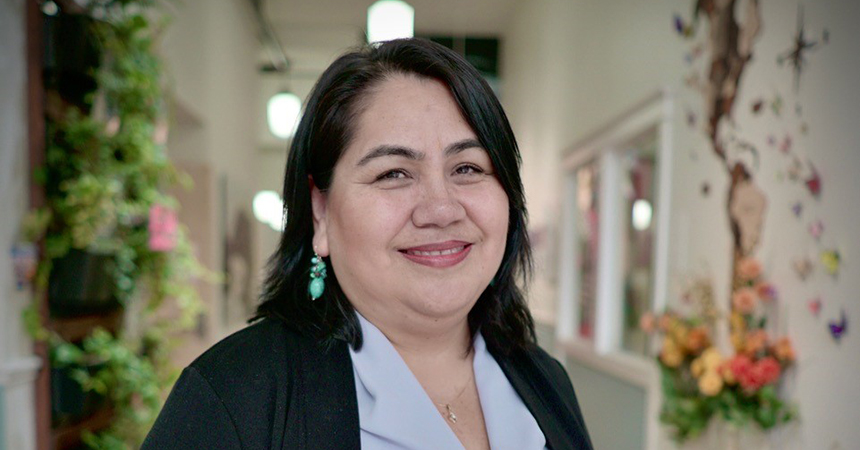Success Story
Solar Ambassadors bring opportunities to communities of color
The Solar Ambassadors pilot, offered by Energy Trust and several community partners in 2023, recruited and trained a diverse group of leaders from communities of color to connect their friends and neighbors with solar energy.
This program introduced a new, trust-centered approach to outreach: train and pay a group of solar ambassadors to talk with people they know about looking into solar energy for themselves. “It’s better to hear this information from a neighbor, family member or friend,” said Bayoan Ware, project manager for Energy Trust. “People are more likely to take in and believe information that comes from someone they recognize and relate to.”
“Our community is not very familiar with this topic or how clean energy works,” said solar ambassador Maria Dolores Torres, environmental justice coordinator for Adelante Mujeres, a nonprofit focused on the needs of Latina women in Oregon. Her work introduced her to solar and how it can help people save on energy bills. She’s passionate about sharing what she knows and ensuring clean energy access for everyone in Oregon.
She’s positioned to do this because she is known and respected in her community. As a Solar Ambassador, Energy Trust gave her the opportunity and support to begin relatable conversations about growing a healthy environment—she also helped develop the curriculum used to recruit and train other ambassadors. “I was so happy to be invited to participate and become a voice for the community,” said Torres.
In addition to Energy Trust and Adelante Mujeres, representatives from African American Alliance for Homeownership, Asian Pacific American Network of Oregon (APANO), Community Energy Project, Solar Oregon, Verde and Unite Oregon created and managed the program with funding from the National Renewable Energy Laboratory.
The participating organizations partnered to produce resources, in English and Spanish, that the Solar Ambassadors could learn from and refer to in their conversations. The program team took time and care in creating the multilingual training curriculum, companion Solar Ambassadors Resource Guide, and a webpage that are practical, informative and approachable. Solar ambassadors directed homeowners and others to the guides, links and frequently asked questions for their own research.
For their time and professional contribution to the program, the ambassadors received comprehensive training and a salary for their work. The goal was for them to set up authentic, short conversations to introduce solar and create interest in learning more about how it works and how to pay for it.
The ambassadors embraced their roles, creativity and deep connections within their communities to set up engagements where they knew people would gather. These ranged from one-on-one discussions over coffee to setting up information tables at events, grocery stores and even a parade. One ambassador combined a solar presentation with a food truck grand opening.
The pilot program taught some valuable lessons. Energy Trust and the other participating organizations learned there is strong interest in solar from communities of color and that investing in trust-building with them matters. Even though cost holds many people back now, increased awareness prepares these communities to participate in solar programs in the future. Energy Trust is now working to use these lessons learned to turn the pilot into a program based on the ambassadors model.
Lack of information about solar is a barrier. “When we remove that barrier, inform and educate the community, we are going to have people participating,” said Torres. “I believe that this is the time to implement clean energy and solar energy is a part of that. My dream is to see our communities included and experience the benefits of clean energy for all.”
